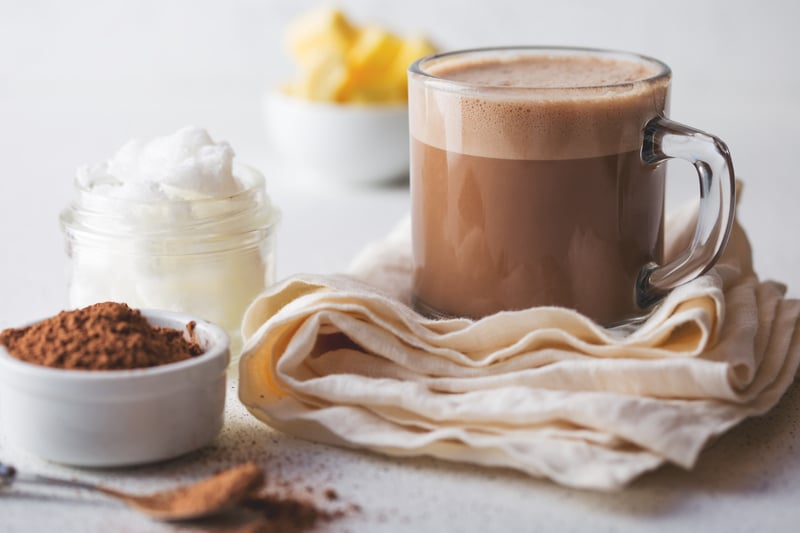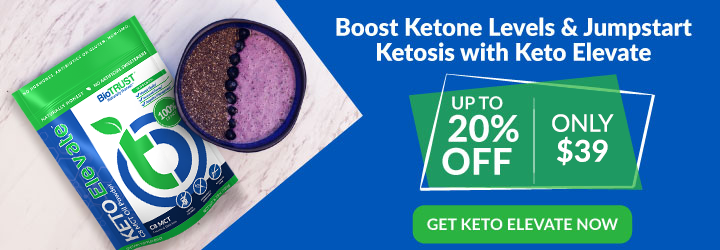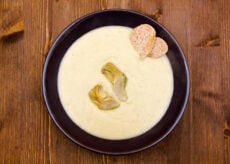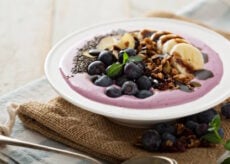What Breaks Your Fast? Things You Can and Cannot Consume

Fasting is hardly a new concept. It has a long, long history. By this time, you’ve probably not only heard of it but maybe have even read up on it, know friends who do it, or perhaps given it a try yourself.
However, in case you are less familiar with fasting, the act of fasting refers to a voluntary eating pattern that alternates periods of eating with periods of either not eating or taking in minimal calories. Those choosing to fast may do so for a variety of reasons, including religion and spirituality, health and weight loss, and survival. Currently, one of the most popular forms of fasting is intermittent fasting.
What is Intermittent Fasting?
Intermittent fasting refers to a dietary approach in which individuals go extended periods of time with little or no caloric intake, with intervening periods of normal intake, on a recurring basis. One of the most common patterns is 16 hours of fasting with an 8-hour eating window (the 16/8 Method), but there are others, including a 12-hour daily fast, fasting 2 days a week (or eating minimal calories around 500 to 600 on “fasting” days), alternate-day fasting, a 24-hour fast once or twice a week (e.g., Eat-Stop-Eat Diet), and others.
Intermittent fasting has been linked to a plethora of health benefits, but if you are new to intermittent fasting, you may have questions about how to fast. One of the most common questions is, “What breaks a fast?”
To put it bluntly: anything that contains ANY calories breaks your fast.
Nevertheless, when it comes to fasting, there is more to consider than just calories. When considering whether a food, beverage, or supplement might break a fast, it’s important to first consider what your goals are around fasting. Common reasons people fast are for weight loss/metabolic health, gut rest/autophagy, or spiritual/religious reasons.
Why Should You Fast?
As previously stated, fasting is commonly used to aid in weight loss. By fasting, most people reduce how much they eat by condensing their feeding window.
Beyond this, though, there may be additional health benefits of intermittent fasting. One of the big benefits is improvements in metabolic function. Intermittent fasting can lead to significant changes in metabolic function, including increased insulin sensitivity, reduced levels of blood glucose, insulin, and leptin, increased adiponectin, increased fat burning, and elevated levels of ketones, which are known to have beneficial effects on cells with a high energy demand, such as neurons in the brain. 1
Another reason you may try fasting is autophagy. Autophagy is the body’s way of cleaning out damaged cells to regenerate newer, healthier cells. Specifically, when looking at your gut, the cells that line your gastrointestinal tract are constantly asked to do work. As a result of autophagy, your digestive cells may repair and restore, clear themselves of junk, and reduce or activate the immune system as needed.
Fasting may even be used as a method to manage circadian rhythms. Circadian rhythm can regulate appetite, GI function, nutrient absorption, hormone secretion, and enzyme activity. Additionally, mealtimes can largely influence circadian rhythms because consuming calories, carbs, and other nutrients wakes up certain organs and starts the body clock.
Historically, the most traditional reason for fasting is for religious practices and spirituality purposes. Fasting can free one from the burdens and distractions of food, providing mental clarity. Likewise, the benefits of fasting may extend beyond physical health, generating both mental and emotional benefits.
With all of these reasons put into consideration, you can begin to pinpoint the root of your fast. By determining the intentions and objective of your fast, you can make more mindful and personalized decisions throughout the process.
What Can and Cannot Be Consumed During a Fast?
For instance, if you’re turning to intermittent fasting for autophagy, circadian rhythm, or spiritual reasons, fasting guidelines can be considered stricter, and if fasting for those reasons, you should consume nothing other than water during the fasted state.
Fasting for weight loss and metabolic function, on the other hand, can be more flexible, depending on your own goals. Which leads us to the all-encompassing question: what can and cannot be consumed during a fast?
1. Water
You can and should drink water during fasting. Water is always a great choice, all day, every day (unless you are experienced in fasting and are doing a dry fast). Water becomes even more important during a fast because hydration is essential for keeping your body cells functioning.
Water can be plain or sparkling or whatever you enjoy.
If you need something to add a bit more flavor to your water, feel free to add in some lemons and limes. Although these do contain a few calories, having lemon or lime in your water will not break your fast. Lemons and limes can help speed up your metabolism and help keep you feeling full.
Even more, sparkling waters and other similar zero-calorie beverages will not break your fast as long as they are naturally flavored and contain no calories. Sparkling water is great to drink while fasting to help you feel full and satiated. However, beware of artificially sweetened beverages, which can create an insulin response and elicit hunger signals.
2. Coffee
With a majority of intermittent fasters forgoing their typical breakfast, coffee becomes a major item of concern. Luckily, if you like a freshly brewed cup of coffee in the morning, you will not be breaking your fast if you stick to black coffee without adding sugar, sweeteners, or dairy products.
Adding any of these could end your fast; however, this doesn’t mean they are completely off-limits. Cream, milk, and other dairy products contain carbohydrates, protein, and fat that do require digestion, but if your primary goal is weight loss, a little splash in your coffee is not going to stop you from losing weight.
However, if you are following strict guidelines and feel the need to add some taste and flavor to your black coffee, you can always add some spices, such as cinnamon, nutmeg, cardamom, pumpkin pie spice, cloves, or star anise, to your coffee.
3. Tea
Just like coffee, tea is naturally calorie-free and fine to have during a fast, as long as it is simply brewed tea. Again, if your circumstance requires stringent fasting rules, some teas, such as herbal teas containing dried fruit, which contain sugar and can spike your insulin, can break your fast. Nevertheless, consuming these natural teas will not create enough of a difference to undo the benefits of your fast for weight-loss purposes.
And if you are wondering about the difference between caffeinated or decaffeinated, there is no need to worry since typical caffeine consumption has a minimal impact on circulating glucose or insulin response in healthy people.
4. Gum
The type of gum has an impact on whether or not it breaks a fast. Original gum contains sugar, which is consumed while chewing it. If you’re having multiple pieces of sugar-containing gum per day, the calories and grams of sugar can add up and will likely have an impact on ketogenesis and your ability to optimally burn fat.
On the other hand, sugar-free gums made with sugar alcohols will still provide a small number of calories and can produce an insulin response. Generally, though, the effect is so small that there is likely no problem.
Ultimately, chewing gum during a fasting period should not create any trouble for the faster, but many still may want to avoid it because chewing gum can actually induce hunger since the motion of chewing naturally prepares the body to ingest food.
5. Protein
Although it is important to make sure you are consuming enough protein while trying to lose weight, and it is an essential food staple, proteins—whether in the form of shakes, meat, or nuts—will break your fast.
Once you’re ready to break your fast, though, having a small portion of protein at your first meal can be a good option because it provides essential amino acids to help rebuild and repair the body.
6. Fruit
Fruits and vegetables are typically packed with vitamins, minerals, phytonutrients, and fiber, but fruit will definitely break your fast. Fruits typically do not benefit your fast, and the calories ingested will cause an insulin spike and break your fast.
7. MCT Oil (such as Keto Elevate™)
Healthy fats like MCT oil, ghee, coconut oil, or butter do break a fast. However, it is important to note that MCT won’t break ketosis and can tide you over between meals.
Intermittent fasting is reliant on caloric restriction, and ketone production and MCTs may help support both, so depending on what your lifestyle and goals are, you can choose to include these healthy fats during your fasting window.
8. Apple Cider Vinegar
Apple cider vinegar has many benefits, and taking a shot of apple cider vinegar in the morning on an empty stomach is a practice many experts claim helps you lose weight, reduce hunger, and remove toxins from the body.
If you like to kick off your day with a wellness shot of apple cider vinegar, go for it! Apple cider vinegar has just 3 calories and 0.1 grams of carbohydrates, and, in essence, very little nutrients. The small amount likely does not inhibit ketosis or the ability to break down fat.
9. Bone Broth
Bone broth does contain protein, a small number of carbohydrates, and sometimes fat, making it a not-so-friendly food of fasting.
Outside of your fast, though, bone broth can be a healthful addition to your diet as it contains essential nutrients such as calcium, magnesium, potassium, and collagen, and is a nutrient-dense product that can be useful for optimizing nutritional intake.
10. Supplements
Supplements and vitamins contain few or no calories and are not likely to break a fast. Taking vitamins and supplements while intermittent fasting requires some experimentation and is all about paying attention to how your body feels. Not all supplements are the same, though, when it comes to their composition, so here are a few that may come into question:
- Individual nutrient supplements like potassium, vitamin D, or B vitamins will not break your fast. It should be noted, though, that some fat-soluble vitamins (e.g., A, D, E, and K) are best absorbed when taken with food, so waiting to take these may provide added benefits. 2
- Omega-3 fatty acids, such as OmegaKrill™ or fish oil, contain few calories, which, depending on the purpose of your fast, will not make a noticeable difference in your results.
- Collagen is a food and therefore contains calories, meaning it will break you out of your fast. However, consuming unflavored collagen shouldn’t significantly affect ketosis or fat burning. 3
- Creatine monohydrate is a supplement powder often used prior to working out. Creatine will not cause your body to lose the benefits gained from fasting as it is typically calorie-free and does not affect the insulin response. 4
- Probiotics, such as Pro-X10, contain no calories or digestible carbs, putting them in the clear for consuming during fasting periods.
Note: Prescribed supplements and medications should continue to be taken as directed as fasting can mess with their effects.
Will This Break My Fast? A Recap
Given our daily routines and personal preferences, we all come across foods that will cause the inevitable question of “will this break my fast?”
For most foods, the answer is easy: Consuming any calories breaks a fast. But given the objective of your fast along with the many food and beverage choices in the ultra-low-calorie territory, the answer can be a little more complicated and nuanced.
As a general rule, for those who are fasting with the intention of losing weight, the consumption of 50 calories or under will not make or break your fast.
The purpose of your fast can be completely different than someone else’s. It is not just about what you are considering eating and drinking that is important; it is actually what your reason for fasting is that dictates whether you should consume it and when.
This flexibility of fasting leads us to the most general answer of them all for what breaks your fast and the things you can and cannot consume because, well, it depends. Nevertheless, with a clear understanding of your goals, you can take charge and make an informed decision to reach your destination.





 7 Signs Your Body is Seriously Low on Collagen (not just wrinkles)
7 Signs Your Body is Seriously Low on Collagen (not just wrinkles) Health Expert: "Turmeric Doesn't Work (unless...)"
Health Expert: "Turmeric Doesn't Work (unless...)" 3 Warning Signs Your Probiotic Supplement is a Total Waste
3 Warning Signs Your Probiotic Supplement is a Total Waste

